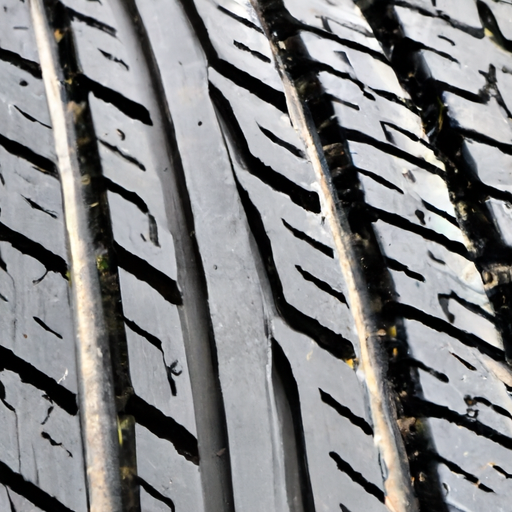You’re probably wondering if there are different summer tire compounds for varying temperatures. Well, the answer is yes! As the weather changes throughout the summer, it’s important to have tires that can adapt to the different temperature conditions. By using specialized tire compounds, manufacturers are able to create tires that perform optimally in both hot and mild weather, providing you with the best possible grip and handling. So let’s take a closer look at the science behind these tire compounds and how they can enhance your driving experience this summer.
What are summer tires?
Definition of summer tires
Summer tires, also known as performance tires or high-performance tires, are specifically designed to provide optimal performance and grip in warm weather conditions. These tires are engineered with unique compounds and tread patterns that maximize their performance on dry and wet roads during the summer season.
Features of summer tires
Summer tires have several distinguishing features that set them apart from other types of tires. They typically have a tread pattern with shallower grooves and more solid tread blocks, which enhances grip and responsiveness. The tread compounds used in summer tires are formulated to withstand higher temperatures and offer improved traction on hot pavements. Additionally, summer tires often feature a larger contact patch and stiffer sidewalls to provide better cornering stability and handling characteristics.
Benefits of using summer tires
Using summer tires can offer numerous benefits for drivers during the warmer months. The specialized tread compound and design of summer tires result in enhanced grip and traction on dry and wet surfaces, which can significantly improve overall safety while driving. These tires also offer better steering response and handling, allowing for more precise control in both normal and high-performance driving situations. Furthermore, summer tires typically provide improved fuel efficiency due to their reduced rolling resistance, resulting in potential cost savings for drivers. Overall, summer tires are a valuable investment for those seeking optimal performance and safety during the summer season.
Understanding tire compounds
Importance of tire compounds
Tire compounds are a crucial component in determining the performance characteristics of a tire. The compound refers to the specific combination of ingredients used in the rubber formulation, including natural and synthetic rubber, fillers, reinforcing materials, and chemical additives. The choice and composition of these compounds have a significant impact on tire durability, grip, braking performance, and handling in various weather conditions.
Different types of tire compounds
There are different types of tire compounds that cater to specific temperature ranges and performance requirements. Summer tires, for instance, utilize specialized rubber compounds designed to excel in warm weather conditions. On the other hand, all-season tires are formulated to provide acceptable performance in a wide range of temperatures, including both summer and winter conditions. Winter tires employ unique compounds that maintain flexibility in cold temperatures, ensuring optimal grip and traction on icy or snowy roads.
Characteristics of different tire compounds
The characteristics of tire compounds can vary greatly depending on their intended purpose. Summer tire compounds, for example, are engineered to remain firm and maintain their grip on hot road surfaces, delivering excellent dry and wet traction. These compounds are designed to minimize rolling resistance and heat generation, enabling high-speed stability and enhanced cornering capabilities. In contrast, winter tire compounds prioritize flexibility and traction in cold temperatures, often including silica or other materials that enhance grip on icy or snowy surfaces. All-season tire compounds strike a balance between the two, offering acceptable performance in a range of conditions.

Factors affecting tire compounds in varying temperatures
Temperature range and tire performance
Temperature has a profound impact on the performance characteristics of tires, primarily due to the behavior of the tire compounds. Heat can cause tire compounds to soften, which can lead to increased grip and traction on warm roads. Conversely, extremely cold temperatures can make tire compounds hard and less pliable, reducing their grip and compromising overall performance.
Effects of high temperatures on tire compounds
In high temperatures, tire compounds in summer tires are specifically engineered to minimize heat buildup. This characteristic allows them to maintain their structural integrity and performance, even when subjected to intense heat. The specialized rubber compounds and heat-resistant materials used in summer tires ensure that they can effectively dissipate heat, preventing excessive wear, tread deformation, and potential tire failure.
Effects of low temperatures on tire compounds
Conversely, low temperatures can have a detrimental effect on tire compounds, particularly those used in summer tires. When exposed to cold weather, these compounds can become stiff and less flexible, leading to reduced grip and traction. This limitation makes summer tires less suitable for winter conditions, as their performance in cold temperatures may be compromised, making driving less safe and efficient.
Summer tire compounds for hot temperatures
Specialized rubber compounds
To withstand hot temperatures, summer tire compounds often incorporate a high-performance rubber formulation that maintains its grip and stability even in extreme heat. These specialized compounds are engineered to resist heat buildup, allowing the tire to remain cool and perform optimally in warm weather conditions.
Heat-resistant materials
In addition to advanced rubber compounds, summer tires may utilize heat-resistant materials in their construction. These materials help dissipate heat and prevent tire overheating, ensuring that the tire retains its optimal performance characteristics, even during extended periods of driving in high temperatures.
High-performance additives
Summer tire compounds may also contain high-performance additives that enhance their overall performance. These additives are designed to improve grip, traction, and handling at higher temperatures, resulting in enhanced stability and control. By incorporating these additives, summer tires can provide drivers with a superior driving experience during hot weather conditions.

Summer tire compounds for mild temperatures
Optimized balance of grip and durability
For milder summer temperatures, summer tire compounds aim to strike an optimal balance between grip and durability. These compounds are formulated to provide reliable traction and handling while also ensuring the longevity and lifespan of the tire.
Enhanced rubber compounds
Summer tires for mild temperatures often incorporate enhanced rubber compounds that offer improved grip and traction on both dry and wet roads. These compounds strike a balance between firmness and flexibility, allowing the tire to perform well across a range of temperatures, making them suitable for regions with variable summer weather.
Moderate performance additives
While not as heat-resistant or high-performing as compounds designed for hotter temperatures, summer tire compounds for mild temperatures may still incorporate performance-enhancing additives. These additives help to further enhance grip, traction, and responsiveness, ensuring a safe and enjoyable driving experience in moderately warm conditions.
Summer tire compounds for cool temperatures
Improved flexibility in lower temperatures
To address the challenges of cooler summer temperatures, summer tire compounds for such conditions are engineered for improved flexibility. These compounds remain pliable and offer enhanced grip, improving overall performance and safety during colder summer months.
Cold-weather specific rubber compounds
Summer tires for cool temperatures often feature rubber compounds that are specifically designed for cold weather performance. These compounds maintain their flexibility and grip even in chilly conditions, ensuring optimal traction and handling on cooler pavement.
Performance-enhancing additives
To further enhance cold-weather performance, summer tire compounds for cool temperatures may incorporate performance-enhancing additives. These additives offer improved grip on cold surfaces and assist in maintaining optimal tire performance, even when temperatures drop.

Testing and certification of summer tire compounds
Regulations and standards for tire compounds
The tire industry is subject to various regulations and standards governing the design, manufacture, and performance of tires, including specific requirements for tire compounds. These regulations ensure that tire compounds meet certain safety and quality standards, providing consumers with reliable and trustworthy products.
Performance testing methods
To assess the performance of summer tire compounds, a variety of testing methods are employed. These tests evaluate parameters such as grip, traction, handling, braking, and overall durability in specific temperature conditions. By subjecting tire compounds to rigorous testing, manufacturers can determine their suitability for various temperature ranges.
Certification requirements
Manufacturers must meet specific certification requirements to ensure their tire compounds are suitable for varying temperatures. Certification bodies evaluate the performance and safety characteristics of the tire compounds, granting certifications that validate their performance claims. These certifications instill confidence in drivers, assuring them that the tires they choose have undergone thorough testing and meet established industry standards.
Choosing the right summer tire compound for your needs
Assessing temperature conditions
When selecting summer tires, it is essential to consider the temperature conditions in which the tires will primarily be used. By assessing the typical summer temperatures in your area, you can determine whether you need summer tire compounds specifically designed for hot temperatures, mild temperatures, or cool temperatures.
Considering regional climate
In addition to assessing temperature conditions, considering the regional climate is crucial when choosing the right summer tire compound. Factors such as humidity, rainfall, and seasonal weather patterns can influence tire performance. For example, areas with high rainfall may require summer tires with enhanced wet traction capabilities, while regions with predominantly dry conditions may prioritize tires with superior dry performance.
Understanding driving preferences
Another factor to consider when choosing summer tire compounds is your driving preferences. If you enjoy spirited driving, high-performance summer tires designed for hot temperatures may be the ideal choice. However, if you prioritize a comfortable and reliable ride, summer tire compounds for mild or cool temperatures may better suit your needs. Understanding your driving style will help you select the right tire compound to optimize your driving experience.

Benefits of using summer tires with specific compounds
Optimal grip and traction
Using summer tires with specific compounds tailored for the temperature conditions you frequently encounter provides optimal grip and traction. These tires are designed to excel in warm weather, ensuring reliable performance on both dry and wet road surfaces. The specialized compounds enhance the tire’s ability to grip the road, contributing to improved traction and handling, ultimately enhancing the safety of your driving experience.
Improved handling and responsiveness
Summer tires with appropriate compounds offer improved handling and responsiveness compared to other types of tires. The advanced rubber compounds, tread patterns, and construction technology provide drivers with enhanced control and maneuverability, resulting in a more enjoyable and engaging driving experience. Whether taking corners at higher speeds or making quick lane changes, the enhanced handling characteristics of summer tires contribute to increased confidence and an overall improved driving performance.
Extended tread life
Summer tires with specific compounds designed for varying temperatures can offer extended tread life. The optimized balance of grip, durability, and flexibility in these compounds ensures that the tires wear evenly and maintain their performance characteristics throughout their lifespan. With proper maintenance and regular rotations, summer tires can provide longer-lasting performance without compromising safety or grip, providing value and cost savings for drivers.
Limitations of summer tire compounds in extreme temperatures
Reduced performance in cold conditions
One of the primary limitations of summer tire compounds is their reduced performance in cold conditions. These compounds are optimized for warm weather, and as the temperature drops, the rubber can become stiff and lose its flexibility. This reduced pliability can lead to compromised grip and traction, making summer tires less suitable for winter driving. It is crucial to switch to winter or all-season tires when temperatures dip below freezing to maintain optimal safety and performance.
Risk of tire damage in high temperatures
While summer tire compounds are engineered to handle high temperatures, extreme heat can still pose risks. Prolonged driving on scorching pavement or under excessive loads can cause tire compounds to overheat, leading to accelerated tread wear, increased rolling resistance, and potential tire damage. It is essential to monitor tire temperature and adhere to recommended load limits to prevent such issues, ensuring the longevity and performance of your summer tires.
Importance of seasonal tire switching
To maximize the benefits of summer tire compounds and overcome their limitations, it is essential to follow a seasonal tire switching practice. As the seasons transition from summer to winter, swapping out summer tires for winter or all-season tires becomes necessary to maintain optimal performance and safety. By utilizing tires with compounds specially formulated for specific temperature ranges, drivers can ensure they have the appropriate grip and traction for the prevailing weather conditions, reducing the risk of accidents and maintaining their tire’s longevity.
In conclusion, summer tires come in different compounds tailored for varying temperatures. Whether you experience hot, mild, or cool summers, there are summer tire compounds available to suit your needs. These compounds are engineered with specialized rubber formulas, heat-resistant materials, and performance-enhancing additives to optimize grip, traction, handling, and durability. When choosing the right summer tire compound, consider the temperature conditions, regional climate, and driving preferences to ensure an optimal driving experience. While summer tire compounds offer excellent performance in warm weather, it is crucial to switch to winter or all-season tires when temperatures drop to maximize safety and performance. By understanding the characteristics and limitations of summer tire compounds, you can make an informed decision and enjoy a safe and enjoyable driving experience during the summer months.


